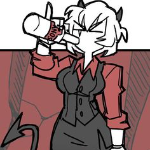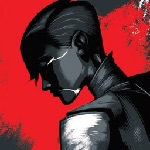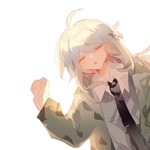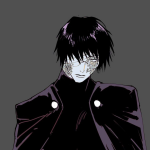Forum Thread
Avarice (open!)
Forum-Index → Roleplay → RP Sign-up → Avarice (open!)This story begins, as most do. On one side of the land, it’s paradise on Earth, on the other, it’s hell.
 Show
hidden content
Show
hidden content
Arcadia, an exclusive enclave perched
atop a lush, rolling hill overlooking a glittering metropolis. This
is a world of unapologetic opulence, where wealth is not just
displayed but flaunted with an air of superiority. Every detail is
meticulously curated to exude extravagance, from the manicured
gardens to the towering mansions that seem to compete for the title
of most ostentatious. The air is perfumed with the scent of rare
flowers imported from distant corners of the world—jasmine from
India, roses from Bulgaria, and orchids from the Amazon. The
streets are paved with polished cobblestones that shimmer faintly
under the golden glow of vintage-style streetlamps. Towering oak
trees, their leaves perfectly trimmed, line the boulevards, casting
dappled shadows on the ground. In the distance, a private golf
course stretches out, its emerald greens immaculate and
undisturbed, save for the occasional golf cart gliding silently by.
A crystal-clear lake sits at the center of the community, its
surface reflecting the grandeur of the surrounding estates. Swans
glide gracefully across the water, their feathers as white as the
marble statues that dot the landscape. The faint sound of a string
quartet playing wafts through the air, emanating from a gazebo
where a private event is underway. The mansions of Arcadia- and
yes, all residences are mansions, are architectural marvels, each
one more grandiose than the last. French châteaus with gilded
balconies stand beside modernist glass fortresses that seem to defy
gravity. One home boasts a facade of imported Italian marble, while
another features a rooftop helipad and a cascading waterfall that
flows into an infinity pool. Every residence is a statement, a
declaration of the owner's wealth and taste—or lack thereof.
And the residents? Their lives, a carefully choreographed performance of wealth and exclusivity. They glide through their days in designer attire—women in branded gowns and branded scarves, men in bespoke suits with luxury watches glinting on their wrists. Their conversations are a delicate dance of name-dropping and subtle one-upmanship. At the local café, a group of socialites sips on rare teas served in bone china cups, their laughter tinkling like the chime of a silver bell. They discuss their recent trips to private islands and their children’s achievements at elite boarding schools. Nearby, a tech mogul holds court, regaling his audience with tales of his latest venture—a space tourism company that promises to take the ultra-wealthy to the edge of the atmosphere. The children of Arcadia are no less polished, their lives a whirlwind of equestrian lessons, violin recitals, and exclusive summer camps in the Swiss Alps. They speak multiple languages fluently and carry themselves with a confidence that borders on arrogance.
And above all, an unspoken hierarchy, a silent understanding of who belongs and who doesn’t. Outsiders are tolerated, and barely so, if, and only if they serve a purpose—delivering a package, tending to the gardens, or catering to a gala. The residents move through their world with an air of entitlement, their every need anticipated and met by an army of staff who remain invisible, like ghosts in the background.
This is a place where time seems to stand still, where the worries of the outside world are kept at bay by high walls and even higher bank balances. It is a gilded cage, a paradise for those who can afford it, and a symbol of the stark divide between the haves and the have-nots. A place ruled by men wearing masks, glided with gold and adorned with jewels. Where a select group of individuals rule with absolute control.
And then there is Eden. A former sanctuary, reduced to a crumbling neighborhood, a world of despair, where the air is thick with the acrid smell of decay and the weight of broken dreams. It is the antithesis of opulence—a place where poverty is pervasive, and survival is a daily struggle. The streets are littered with debris, the buildings are hollow shells of their former selves, and the people are trapped in a cycle of debt, crime, and violence. The streets are cracked and potholed, filled with stagnant puddles of water that never seem to dry. Graffiti covers every available surface—angry, jagged letters that tell stories of frustration and rebellion. Abandoned cars line the sidewalks, their windows smashed and tires stolen. The occasional flicker of a broken streetlamp casts eerie shadows, but most of the neighborhood is cloaked in darkness. The few trees that remain are skeletal, their branches stripped bare by pollution and neglect. Trash piles up in corners, attracting rats and stray dogs that scavenge for scraps. In the distance, the skeletal remains of an old factory loom like a ghost, its broken windows staring out like empty eye sockets. The sound of sirens is a constant backdrop, mingling with the occasional burst of shouting or the sharp crack of gunfire.
The buildings in Eden are a patchwork of decay and desperation. Once-proud row houses now sag under the weight of neglect, their facades crumbling and their roofs caving in. Many are boarded up, their windows covered with plywood that has been graffitied or torn away. Others are barely standing, held together by duct tape and prayers. Laundry hangs limply from makeshift clotheslines, the fabric gray and threadbare. In the heart of the neighborhood, a dilapidated apartment building stands as a symbol of Eden’s decline. The elevator hasn’t worked in years, and the stairwells reek of urine and mildew. Families cram into tiny, roach-infested units, their walls paper-thin and their floors uneven. Water leaks from broken pipes, and the electricity flickers on and off without warning. For many, this is the only shelter they can afford—a far cry from the mansions of Arcadia. Lottery cards are common trash, discarded hopes of the people desperate to win it big, to win big bucks, and win it quick.
The people of Eden are worn down by life, their faces etched with lines of worry and exhaustion. Payday lenders and pawnshops line the streets, owned by those in Arcadia preying on the desperate with exorbitant interest rates and empty promises. Hard work isn’t an option for the people here. They want to make it big, and they want to do it quick. Many have turned to crime as a means of survival, their moral compasses eroded by necessity. Violence is a fact of life here. Gangs control the streets, their territories marked by cryptic symbols spray-painted on walls. Drug deals go down in broad daylight, and the sound of gunfire is as common as the chirping of crickets in the night. Children grow up too fast, their innocence stolen by the harsh realities of their environment. They play in the shadows of abandoned buildings, their laughter tinged with a hardness that belies their age.
Eden is a place of palpable tension, where every interaction carries an undercurrent of fear or mistrust. Neighbors eye each other warily, unsure of who can be trusted. The police are rarely seen, and when they do show up, it’s often too late. The few community centers that remain are underfunded and overrun, their walls plastered with flyers for support groups and addiction counseling.
And the residents? Their lives, a carefully choreographed performance of wealth and exclusivity. They glide through their days in designer attire—women in branded gowns and branded scarves, men in bespoke suits with luxury watches glinting on their wrists. Their conversations are a delicate dance of name-dropping and subtle one-upmanship. At the local café, a group of socialites sips on rare teas served in bone china cups, their laughter tinkling like the chime of a silver bell. They discuss their recent trips to private islands and their children’s achievements at elite boarding schools. Nearby, a tech mogul holds court, regaling his audience with tales of his latest venture—a space tourism company that promises to take the ultra-wealthy to the edge of the atmosphere. The children of Arcadia are no less polished, their lives a whirlwind of equestrian lessons, violin recitals, and exclusive summer camps in the Swiss Alps. They speak multiple languages fluently and carry themselves with a confidence that borders on arrogance.
And above all, an unspoken hierarchy, a silent understanding of who belongs and who doesn’t. Outsiders are tolerated, and barely so, if, and only if they serve a purpose—delivering a package, tending to the gardens, or catering to a gala. The residents move through their world with an air of entitlement, their every need anticipated and met by an army of staff who remain invisible, like ghosts in the background.
This is a place where time seems to stand still, where the worries of the outside world are kept at bay by high walls and even higher bank balances. It is a gilded cage, a paradise for those who can afford it, and a symbol of the stark divide between the haves and the have-nots. A place ruled by men wearing masks, glided with gold and adorned with jewels. Where a select group of individuals rule with absolute control.
And then there is Eden. A former sanctuary, reduced to a crumbling neighborhood, a world of despair, where the air is thick with the acrid smell of decay and the weight of broken dreams. It is the antithesis of opulence—a place where poverty is pervasive, and survival is a daily struggle. The streets are littered with debris, the buildings are hollow shells of their former selves, and the people are trapped in a cycle of debt, crime, and violence. The streets are cracked and potholed, filled with stagnant puddles of water that never seem to dry. Graffiti covers every available surface—angry, jagged letters that tell stories of frustration and rebellion. Abandoned cars line the sidewalks, their windows smashed and tires stolen. The occasional flicker of a broken streetlamp casts eerie shadows, but most of the neighborhood is cloaked in darkness. The few trees that remain are skeletal, their branches stripped bare by pollution and neglect. Trash piles up in corners, attracting rats and stray dogs that scavenge for scraps. In the distance, the skeletal remains of an old factory loom like a ghost, its broken windows staring out like empty eye sockets. The sound of sirens is a constant backdrop, mingling with the occasional burst of shouting or the sharp crack of gunfire.
The buildings in Eden are a patchwork of decay and desperation. Once-proud row houses now sag under the weight of neglect, their facades crumbling and their roofs caving in. Many are boarded up, their windows covered with plywood that has been graffitied or torn away. Others are barely standing, held together by duct tape and prayers. Laundry hangs limply from makeshift clotheslines, the fabric gray and threadbare. In the heart of the neighborhood, a dilapidated apartment building stands as a symbol of Eden’s decline. The elevator hasn’t worked in years, and the stairwells reek of urine and mildew. Families cram into tiny, roach-infested units, their walls paper-thin and their floors uneven. Water leaks from broken pipes, and the electricity flickers on and off without warning. For many, this is the only shelter they can afford—a far cry from the mansions of Arcadia. Lottery cards are common trash, discarded hopes of the people desperate to win it big, to win big bucks, and win it quick.
The people of Eden are worn down by life, their faces etched with lines of worry and exhaustion. Payday lenders and pawnshops line the streets, owned by those in Arcadia preying on the desperate with exorbitant interest rates and empty promises. Hard work isn’t an option for the people here. They want to make it big, and they want to do it quick. Many have turned to crime as a means of survival, their moral compasses eroded by necessity. Violence is a fact of life here. Gangs control the streets, their territories marked by cryptic symbols spray-painted on walls. Drug deals go down in broad daylight, and the sound of gunfire is as common as the chirping of crickets in the night. Children grow up too fast, their innocence stolen by the harsh realities of their environment. They play in the shadows of abandoned buildings, their laughter tinged with a hardness that belies their age.
Eden is a place of palpable tension, where every interaction carries an undercurrent of fear or mistrust. Neighbors eye each other warily, unsure of who can be trusted. The police are rarely seen, and when they do show up, it’s often too late. The few community centers that remain are underfunded and overrun, their walls plastered with flyers for support groups and addiction counseling.
For most, Eden is a prison—a place where hope is a luxury they can’t afford. It’s a stark contrast to the gilded excess of Arcadia, a reminder of the divide between them.
But one thing remains constant. The greed of the people. For Arcadia, its the greed to have total control, to be the writers of fate. To play gods and puppeteers. For Eden, its the greed of wanting wealth. An understandable greed, if not for the less than savory lengths they’d go to achieve it. And the higher ups of Arcadia know this very well. So, a set of games were designed, the game a carefully orchestrated masterpiece designed for the unravelling of humanity. To show that humans, in their basest instincts, are greed-driven creatures with no benevolence left to spare. A game offered to both the rich and to the poor, promising everything they could desire. The rich are blackmailed, and the poor are given empty promises. And one way or another, they are weaved into the games for pure entertainment.
And you? You’re one of them playing these games. Perhaps you can see past the greed- both your own and that of others, and find the little hope for humanity. Or perhaps you’re ready to risk it all, to emerge triumphant, the sole winner of whatever glamorous prize awaits. Well, the choice is yours. Pick a side. And try not to die.
andrea’s quick guide:
- Arcadia focuses more on powers, while Eden is like a jack of all trades, having been built for survival. Powers in Arcadia are typically more for show and flair, but generally Arcadians would triumph in power and Edenlings in their diverse abilities.
Form:
 Show
hidden content
Show
hidden content
Age:
Side (Arcadia/Eden):
Powers (your magic! eg: water manipulation):
Abilities (Physical Capabilities eg: agility, pickpocketing etc):
Motivation (why did your character join the games?):
Deepest Fear:
Personality (personality type is encouraged but not necessary, please be thorough here, no one liners):
Appearance (this can be brief; it’s just so others can identify your character):
Palpad?:
This roleplay draws inspiration from the following series:
 Show
hidden content
Show
hidden content
Hunger Games, Squid Games, Arcane.
Basically, I binged watched all three (my mid term project oh no)
and went- whoa capitalism.
Name:
Age:
Side (Arcadia/Eden):
Powers (your magic! eg: water manipulation):
Abilities (Physical Capabilities eg: agility, pickpocketing etc):
Motivation (why did your character join the games?):
Deepest Fear:
Personality (personality type is encouraged but not necessary, please be thorough here, no one liners):
Appearance (this can be brief; it’s just so others can identify your character):
Palpad?:
☽ •。° ✦ Welcome ✦ °。• ☾
To my void
The endless world with no
☽ •。° ✦ Escape ✦ °。• ☾
Title: WIP (Will be done by at least 5/11/25)
Age: 26
Side (Arcadia/Eden): Eden
Powers (your magic! eg: water manipulation):
Abilities (Physical Capabilities eg: agility, pickpocketing etc):
Motivation (why did your character join the games?):
Deepest Fear:
Personality (personality type is encouraged but not necessary, please be thorough here, no one liners):
Appearance (this can be brief; it’s just so others can identify your character):
Palpad?: Yes
"Was it any wonder the Grandiloquy were such empty, hollow people? Ordinary people passed their lives rewarded by the occasional brush with sensory delight, and these brief joys motivated them to endure struggles to find further joy, made all the more satisfying for having been hard-won.
The Grandiloquy, on the other hand, led lives saturated by the rewards they unrestrainedly granted themselves, and they struggled not at all. They squandered fortunes, knowing their wealth could not be exhausted. They intoxicated themselves, knowing the damage could be healed. They lived amid intense beauty, but their appreciation of it was dulled by how easily and often they came by it. When everything was gifted, nothing had value." -- By S.J Kincaid
Age: 25
Side (Arcadia/Eden): Arcadian
Occupation: Thorne bodyguard
Powers: Ice magic- Nox is an expert in ice abilities, being able to create icy shields, lower the temperatures of small rooms, and even freeze blood (although it means consuming all her mana). But she finds that using trickery is far less work than fighting a long battle against her opponent. She normally summons an innocent field of crystal looking flowers, that explode in an array of icy shards on command, the flowers are sensitive to the mana of others
Physical Capabilities: Having been forced to go through rigorous training, Nox is a very adequate fighter, but what sets her apart from past bodyguards is her sensitivity to mana detection. She is very good at sensing powers, which can make her on edge when stuck in crowded rooms.
She also has good diplomatic skills. Over the years spent working for the family, she has been forced to learn basic politics. But she doesn't partake in decisions-- mostly because that means negotiation, and she sucks at conversation
Weaknesses: Fire or heat type abilities are a challenge for Nox that she normally loses against. She also sucks at conversation and can be very awkward. Crowded rooms also make her uncomfortable, since she is good at sensing magical abilities
Motivation: The Thorne family has everything to benefit and nothing to lose by forcing Nox to compete in the games in their place. They don't risk spilling family blood, and get the honor of her achievements. If she somehow loses, they can argue they were "weeding out the weak one's." Nox is aware of all of this, while it annoys her to be a simple pawn, it's an easier pill to swallow knowing she'll get a lot of money from them if she is successful in winning the games
Deepest Fear: Losing everything she has worked so hard to obtain, or lacking control of a situation. She likes to have a partial hand in everything, and gets anxious when things don't go the way she plans
Personality: Loyal to the core. Nox doesn't talk much out of professional habit, only speaking when she is spoken to. She is also self-aware, not ignorant to the fact that the family believes she is beneath them, and that she is replaceable if she makes too many mistakes. She is aware of the dehumanization of the Dan in her name, symbolizing servitude to the Thorne family. Despite a mountain of reasons to be swayed against the family, money talks, and despite the Dan in her name, she is still a honorary member of the Thorne family, and has more societal power than most Eden people. She is a realist, and very nonchalant. She see's and treats everything like a job, no matter what it is, she is nothing but a lapdog to the Thorne family. Despite the stick up her you-know-what attitude, she has a secret fondness for cute animals, sweets, and petty drama; a side she is rarely allowed to show.
Appearance: She has white hair, cut short into a pixie cut. Her cold, calculating eyes are an unusual shade of gold. She stands at about 5'9, and has a fairly muscular build. She normally wears a suit to blend in amongst high society, as most people in her profession do. She is required to stuff a purple cloth with a silver fox in her pocket- another way to show her servitude to the Thorne family. She always wears a cloth mask that covers her mouth to hide her identity when on the job, but goes without it during public appearances. She doesn't give her enemies... Or allies, anything to work with
Palpad?: Yes
Mikhayahu "Mimi" Ezra
18 | He/Him | Arcadian | ISFJ | 7w6
Powers:
Defensive Magic - A master of remaining unbreakable, Mimi's unwavering magic manifests with a particularly strong form of defensive magic. Nothing will get past him if he has anything to say about it. From traditional shields to reflections and even absorption, if it is a inherently defensive spell, he has a particular knack for them. He is quite confident in his barriers which is not unfounded, his versatility with his magic in creating different barriers that serve different purposes as well as their integrity being his biggest assets in a fight when his usual tactics fail him. The magic in of itself is also particularly non-exhaustive, allowing for Mimi to set up various defensive spells at once though they do grow weaker, the more that are present at once.
Abilities:
With a cute face and a soft voice, Mimi is best at forging connections with people. Negotiations, politics, alliances, friendships, he can broker them all with a smile and carefully chosen words. He is a master of getting people to let down their guard and listen to his carefully chosen words. When that doesn't work, he is fairly nimble and flexible, able to bend and contort himself away from danger in ways that opponents might not expect. When opponents do manage to land a hit on him, they will find that Mimi is quite resistant to pain, injuries that any ivory tower princess like him would faint at garnering nothing more than a blink.
Motivation:
On the outside, he has been sent as a representative of the Benowitz family as a show of power. As a well known pet of the family, Mimi is in the perfect position to participate in order to further the Benowitz family's name and expand on their already lavish wealth. He has enough skill to make it fairly far in the competition to keep things interesting and has made enough connections within Arcadian society that the sympathy gifts upon the Benowitz family will surly be lavish upon his inevitable death. But Mimi himself? Well his motivations are simpler than any game of complicated politics or bottomless greed. He just wants to die.
Deepest Fear:
Nothing in particular, his worst fears have already happened and he's still alive. But lately, he's been finding himself a little too... complacent with his current life. A life where in his deepest fears are an everyday occurrence. A life with only one way out.
Personality:
Bright and cheerful, Mimi blends into the pleasure dominated greed that defines Arcadia. He is quite energetic, always brimming with a willingness to learn more and more about the people who mingle the social halls and forging connections as easy as breathing. His willingness to hand over anything that is asked of him sets him apart from the high socialites of the city of greed, always with a smile and a question as to if there is anything else he can give. Perhaps because of his submissive approach to societal battles, he has a knack for getting people to trust him easily. His innocent and waifish appearance naturally lulls many into letting down their guards and his charismatic tongue drawing out even the easiest of conversations. You can't help but smile when talking with him, his penchant for nicknames building a even closer bond with those who have only met Mimi. While his relationships are all superficial at best, he has a way with words that makes other feels as if they know everything about Mimi even if he hasn't told them anything meaningful.
However, if you take the time to really listen to what he's saying, Mimi is actually quite dismal. His seemingly charming and optimistic words belay the realist in him and his own sharp understanding of his position as a personal pet to a high socialite family. He sees absolutely no worth in anything that Arcadia offers, resigning himself to being complacent in the very life he finds detestable yet willingly lives.
Appearance:
A young man with light pink slightly wavy hair, Mimi styles it though how he does it changes greatly with his mood. His skin is soft and milky, painstakingly kept perfect through a meticulous routine of skincare products and a lot of concealer. While his eyes are naturally blue, he does wear contacts to give it a more mysterious shade to it, it also doubles as prescription contacts. His outfits also change as fast as the trends do, a rotating wardrobe of things just slightly out of fashion that its excusable but clearly second hand to any Arcadian worth their salt. The only thing that seems consistent about his wardrobe is the heavy red leather collar around Mimi's throat, a tag with the Benowitz family's crest stamped upon it dangling on it, declaring him nothing more than a common pet.
Palpad?:
Yee

•°. * уσυ ¢αи'т נυѕт ℓєανє α gυу ωнσ'ѕ тяуιиg нιѕ вєѕт ∂єѕριтє єνєяутнιиg αℓσиє, у'киσω? * .°•
 Don't have an account yet?
Don't have an account yet? 












